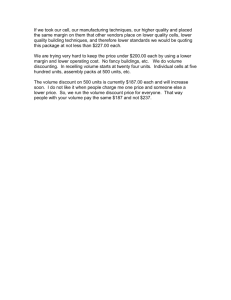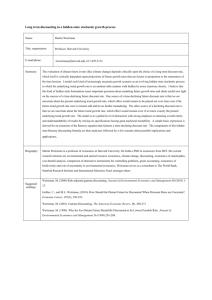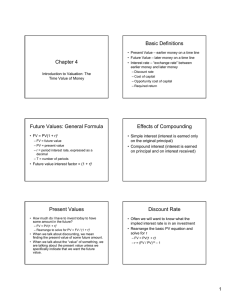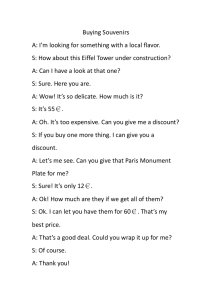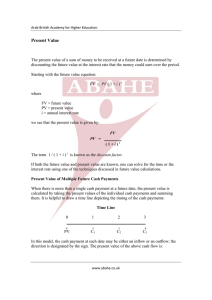Should We Discount the Far-Distant Future at Its Lowest Possible
advertisement
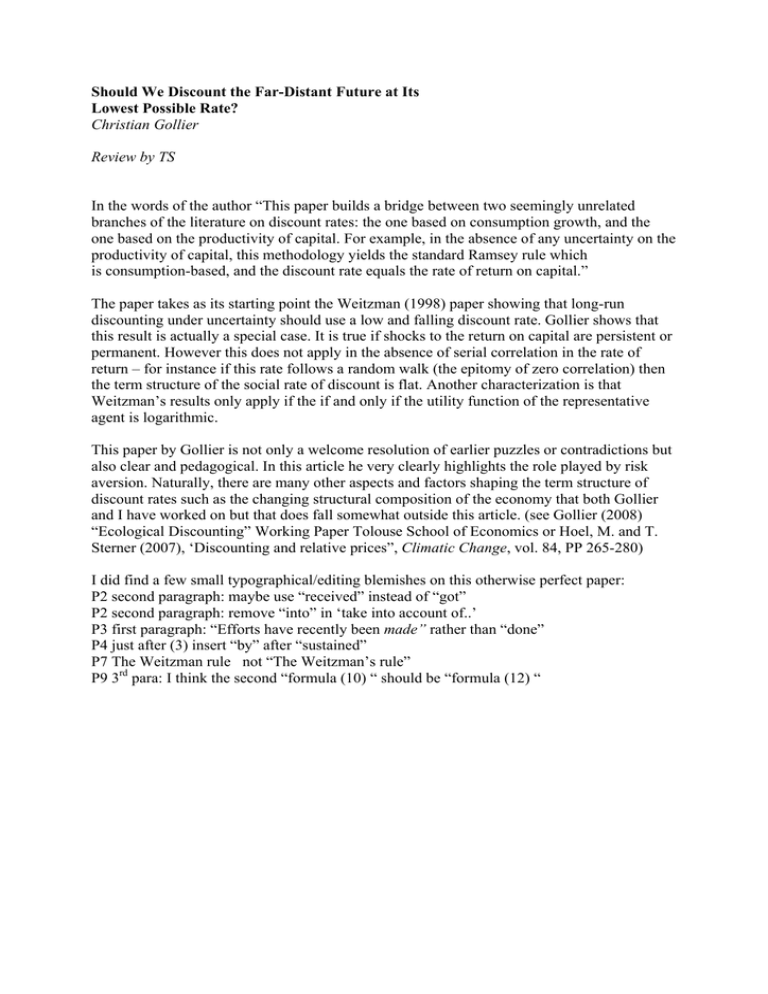
Should We Discount the Far-Distant Future at Its Lowest Possible Rate? Christian Gollier Review by TS In the words of the author “This paper builds a bridge between two seemingly unrelated branches of the literature on discount rates: the one based on consumption growth, and the one based on the productivity of capital. For example, in the absence of any uncertainty on the productivity of capital, this methodology yields the standard Ramsey rule which is consumption-based, and the discount rate equals the rate of return on capital.” The paper takes as its starting point the Weitzman (1998) paper showing that long-run discounting under uncertainty should use a low and falling discount rate. Gollier shows that this result is actually a special case. It is true if shocks to the return on capital are persistent or permanent. However this does not apply in the absence of serial correlation in the rate of return – for instance if this rate follows a random walk (the epitomy of zero correlation) then the term structure of the social rate of discount is flat. Another characterization is that Weitzman’s results only apply if the if and only if the utility function of the representative agent is logarithmic. This paper by Gollier is not only a welcome resolution of earlier puzzles or contradictions but also clear and pedagogical. In this article he very clearly highlights the role played by risk aversion. Naturally, there are many other aspects and factors shaping the term structure of discount rates such as the changing structural composition of the economy that both Gollier and I have worked on but that does fall somewhat outside this article. (see Gollier (2008) “Ecological Discounting” Working Paper Tolouse School of Economics or Hoel, M. and T. Sterner (2007), ‘Discounting and relative prices”, Climatic Change, vol. 84, PP 265-280) I did find a few small typographical/editing blemishes on this otherwise perfect paper: P2 second paragraph: maybe use “received” instead of “got” P2 second paragraph: remove “into” in ‘take into account of..’ P3 first paragraph: “Efforts have recently been made” rather than “done” P4 just after (3) insert “by” after “sustained” P7 The Weitzman rule not “The Weitzman’s rule” P9 3rd para: I think the second “formula (10) “ should be “formula (12) “
